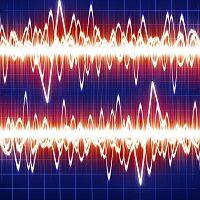Article
Deep Brain Stimulation Shows Promise in Alzheimer's
Author(s):
Targeting the formix, researchers in Arizona said electronic stimulation appeared to help Alzheimer's patients.

Deep brain stimulation shows promise as a viable treatment for Alzheimer’s disease.
The procedure showed few negative effects in the ADvance Trial, a 12-month phase 2 study of 42 patients in six hospitals with mild Alzheimer’s disease. The study, which tested safety, efficacy, and tolerability, was led by Francisco Ponce, MD, Director of the Barrow Neurological Institute, part of Dignity Health St. Joseph’s Hospital in Phoenix.
The procedure involves using an implanted neurostimulator to deliver electrical pulses to correct abnormal signals in areas of the brain involved with the condition. In this study, Ponce and his team targeted the fornix, a part of the brain that is involved in the memory pathway. Currently, deep brain stimulation (DBS) is only approved in the U.S. for treatment of Parkinson’s disease and essential tremor, in which motor neurons are targeted. However, it is being studied for a number of neurological disorders including epilepsy, depression, and bipolar disorder.
"There are more than five million Americans living with Alzheimer's, and yet there are few promising pharmacologic treatment options for this progressive disease," Ponce said. "Previous pilot studies researching the use of DBS in Alzheimer's have indicated the potential to slow cognitive decline in some patients, and have even shown metabolic changes in the brain that may slow the progression of the disease."
The participants did not experience neurological deficits, unanticipated device failures, or programming-related adverse effects. Headache and infection did occur in 11.9 percent of the patients.
There were no deaths.
"The first phase of this study was designed to evaluate the 90-day postoperative safety of this particular surgical method. While the study was relatively small, we believe the data suggest that DBS surgery targeting the fornix can be performed safely in this patient population.
The hope is that our positive surgical experience will help pave the way for future research into DBS and Alzheimer's," Ponce said. They expect to complete a longer term study with 2-year follow-up later this year. The results were published online December 18, 2015 in the Journal of Neurosurgery.





